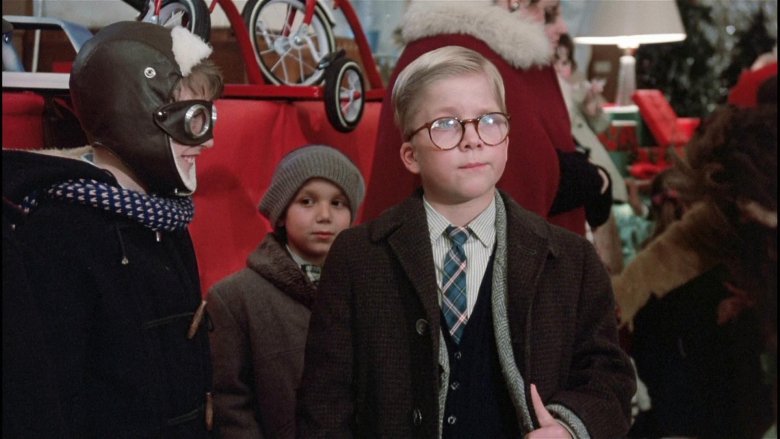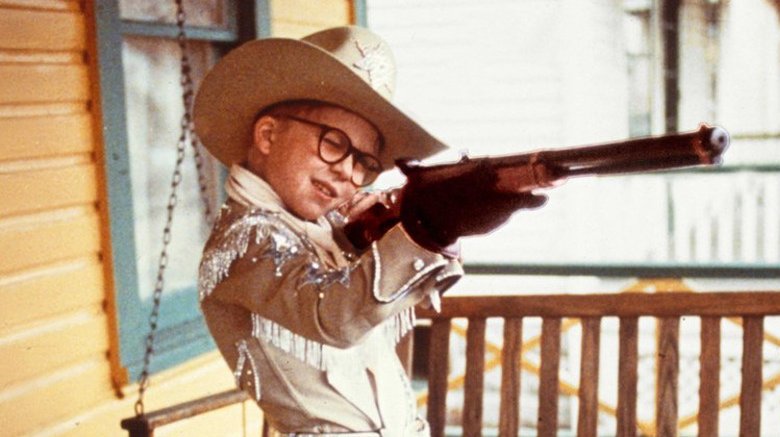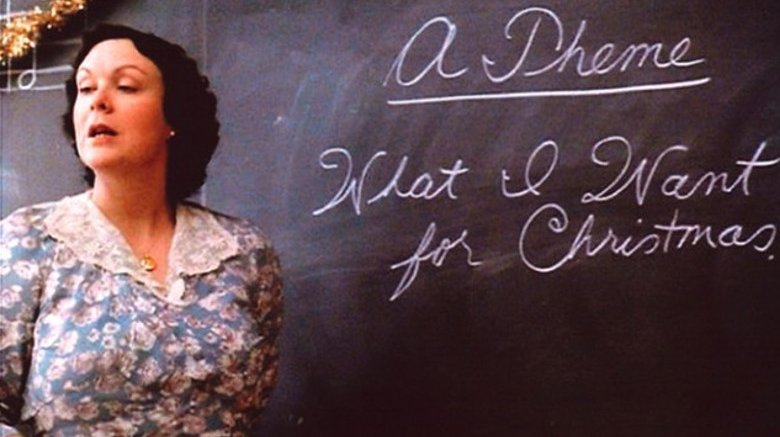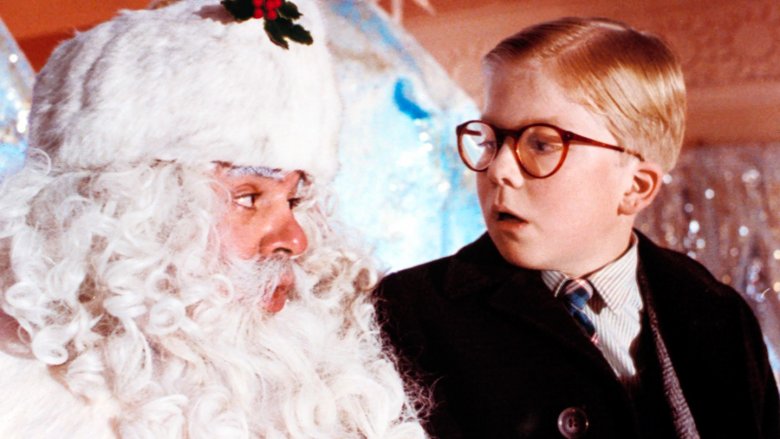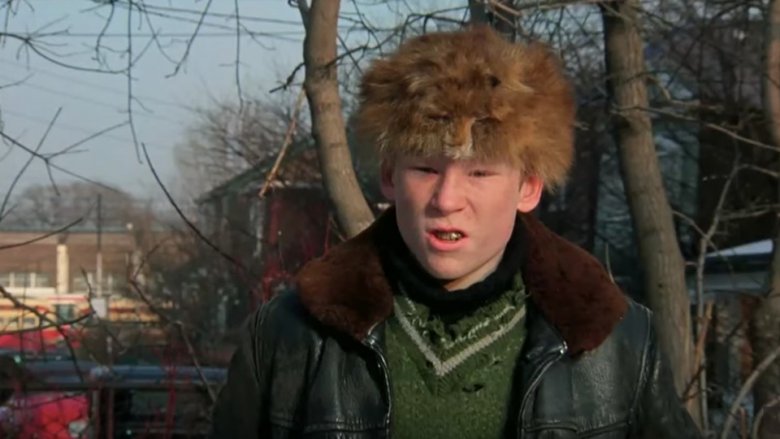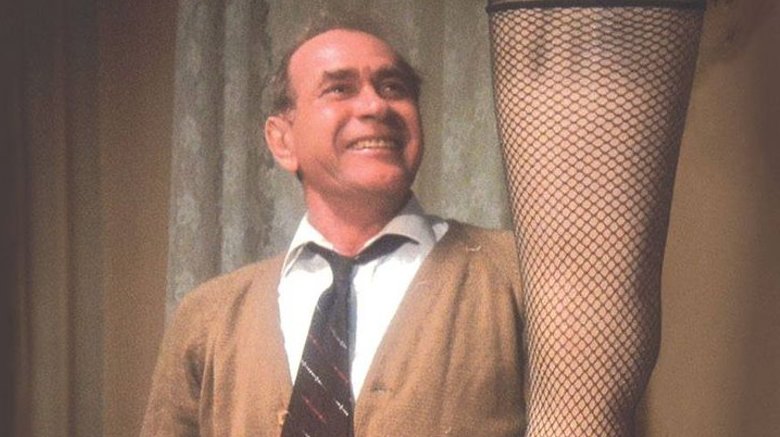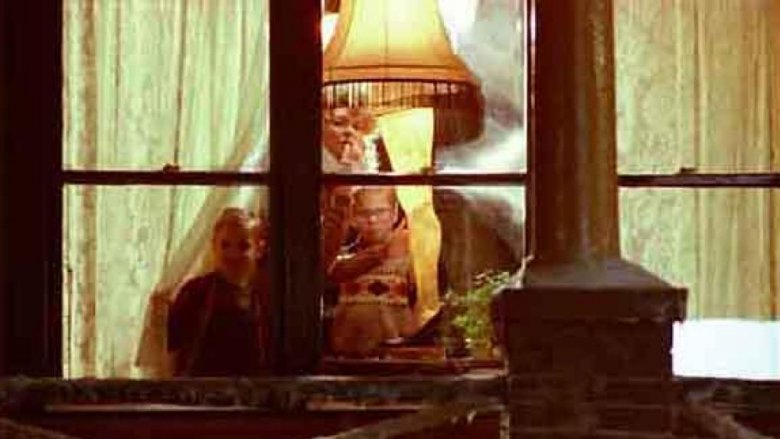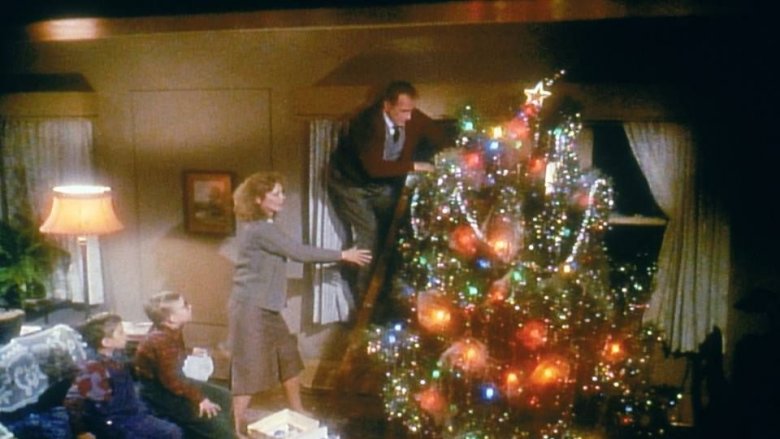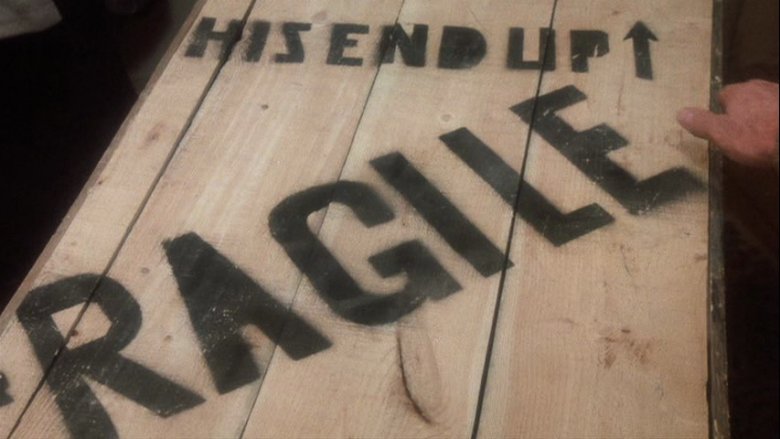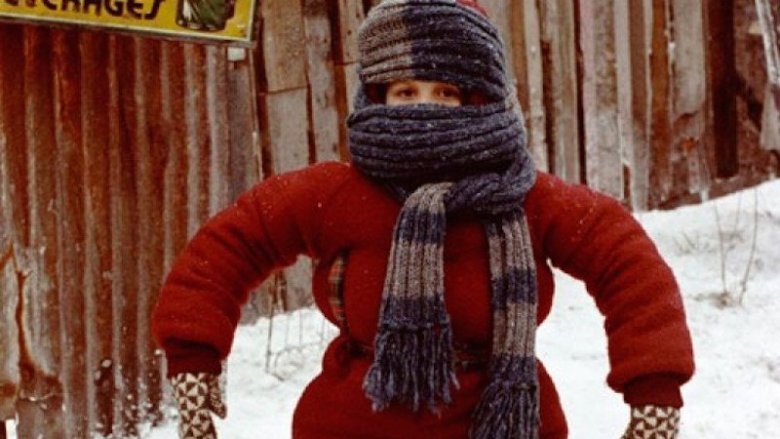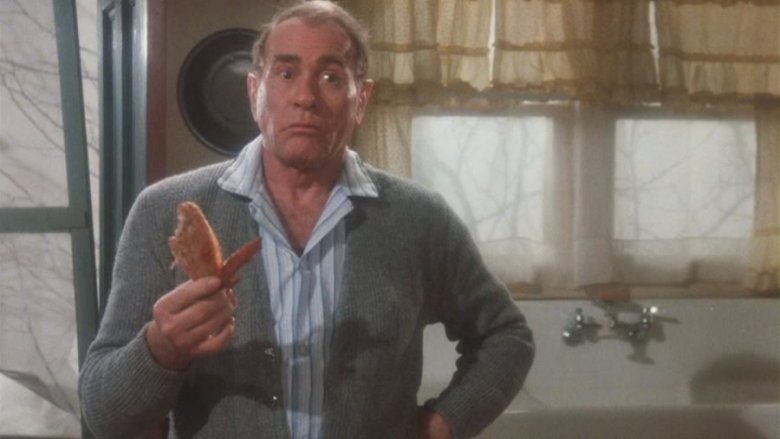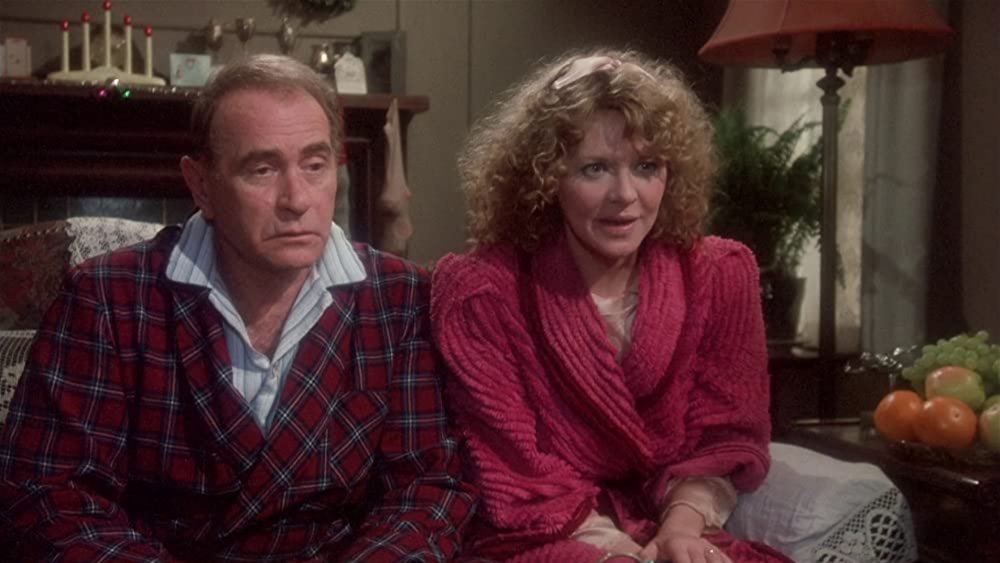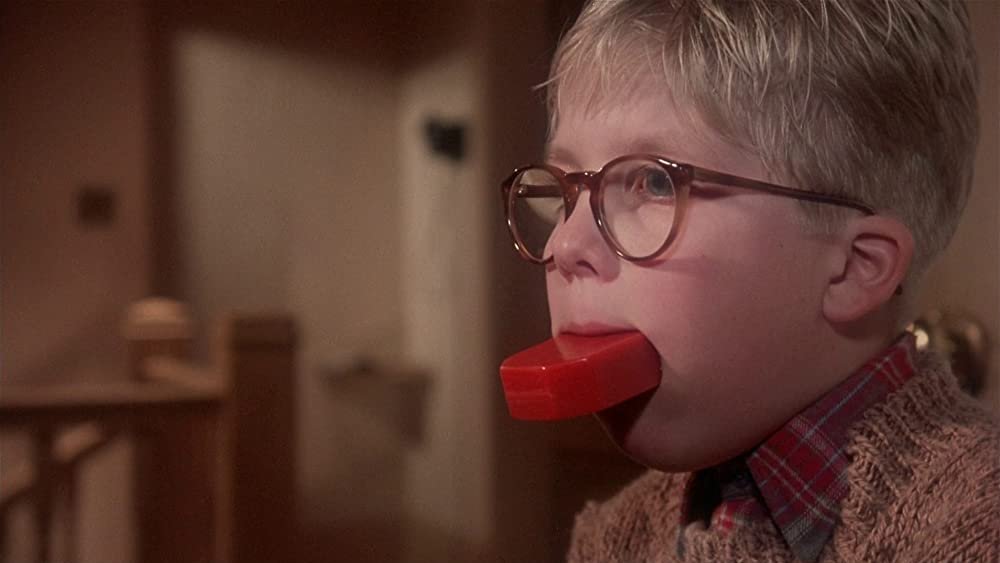Things Only Adults Notice In A Christmas Story
Every Christmas, families all over the world gather to watch all the classics they've made a traditional part of their celebrations year after year. There are countless movies, TV specials, and other bits of Christmas pop culture that become part of life this time of year, but one seems to rise above the rest in a lot of households, if only because it's on literally constantly every Christmas Day. A Christmas Story, director Bob Clark's 1983 tale of a young boy named Ralphie (Peter Billingsley) who just wants a BB gun for Christmas, is one of the most beloved and frequently rewatched holiday films of all time, and a lot of people have grown up with it. If you're among those people, that means you've had the distinct experience of viewing the film one way as a child, and then viewing it very differently as an adult. In celebration of that inevitable shift in perception, here's a look at things only adults notice in A Christmas Story.
Violent tendencies
One of the hallmarks of A Christmas Story is the rich fantasy life that Ralphie indulges in on his road to Christmas Day and, hopefully, his Red Ryder BB gun. The most elaborate of these fantasies involves him imagining what he might use the gun for, as bandits led by Black Bart attack the family home, forcing Ralphie and his trust new weapon to defend the rest of the Parkers. It plays out like the perfect kid fantasy of a Western unfolding in their very own neighborhood, but it takes a slightly dark turn when, at the end, it's pretty clear that Ralphie has killed Black Bart's gang. Kids might not notice this, but the lolling tongues and crossed out eyes suggest death, and he was, after all, shooting them. Yes, it's just a fantasy, but it's a grim one for a kid who mostly just wants to shoot targets in the backyard.
The opposite sex
Ralphie is nine years old as most of A Christmas Story unfolds, placing him in a rather interesting in-between age. He's young enough to still consider things like Christmas and Santa Claus the most important parts of his life, and to care deeply about things like Little Orphan Annie secret decoder rings, but he's also old enough to fancy himself more mature than his younger brother. It's subtle, but this budding maturity comes out in a couple of key moments when it becomes clear that Ralphie is becoming interested in women. When The Old Man sets up the leg lamp for the first time, Ralphie basically cops a feel of the thing, and in both his fantasies and in real life it's clear that he at the very least wants his teacher to like him. He might even have a little crush on Miss Shields. It's not something the film is too interested in exploring further, but it's there.
A complicated Santa connection
Ralphie's quest for his Red Ryder BB gun culminates when, feeling all of the adults in his life have forsaken him, he decides to appeal directly to Santa at the local department store on Christmas Eve. This backfires spectacularly, as Ralphie spends the entire time waiting in line trying to focus on his goal, only to forget everything he was going to say when he finally climbs the towering North Pole structure in the store. To make matters worse, the Santa at the top seems unusually intimidating and even frightening to Ralphie's eyes, as he panics amid a closing store and a group of pushy elves. It's clear that Ralphie blew his shot, but what's less clear is why. What about his past history with Santa made him so nervous about asking for something from the big guy? Was he just psyched out by all of the rejections that came before, or is it more specific? Also, given all of the time and care he spent writing his Christmas theme for school, you'd think he would have had the idea at some point to try writing to Santa. Whatever's going on in Ralphie's head, there's a complex relationship with Santa there that we don't see every detail of.
The darkness of bullying
A Christmas Story is a tale of kid concerns and kid perceptions, so everything in Ralphie's world is just a little bit heightened. This includes his encounters with the bully Scut Farkus (Zack Ward), who seems to lurk around every corner and take his sick delight in the pain of other kids to near supervillain levels, at least until Ralphie finally finds it within himself to fight back. To any kid watching, bullying is, if not a reality, at least a familiar abstract concept they've had to deal with in their lives, so they may simply accept it and move on with the story. For adults, though, there's a sense that the bullying in A Christmas Story is particularly dark in part because the adults surrounding the children don't really do that much about it, and the kids don't necessarily want them to. Farkus haunts Ralphie and his friends all the time, but they don't tell on him. Flick (Scott Schwartz) walks into class with a black eye one day, and Miss Shields pays little attention to it. Even when Ralphie finally beats the hell out of Farkus, his mother (Melinda Dillon) ignores the other kid in the fight and focuses only on her son, never really stopping to ask what happens. It calls to mind a world in which kids are on their own, and to modern audiences that can be a little scary.
The inner life of The Old Man
Ralphie's father, only ever referred to as The Old Man (Darren McGavin) is a typical representation of a Midwestern father figure in the early 20th century. He's stern but not cruel, caring but not affectionate, and distant but not absent. He's a man's man, and he spends most of the film just trying to read his newspaper and enjoy a little bit of turkey while his sons get into trouble around him. If you look close enough, though, there are little hints of eccentricity in The Old Man's life. He insists on being timed when he changes a tire, for example, and went through the trouble of burying his "major award" in the backyard and supposedly playing "Taps" in tribute to it as he did. He even takes some time in the department store to skip along with the Wizard of Oz characters. Ralphie doesn't think much about it, but there's more to his Old Man than newspapers and furnace battles. He has a rich inner life that we only see glimpses of.
The great leg lamp debate
A Christmas Story has been watched every holiday season for more than three decades now, and in the past decade or so in particular it's become an inescapable part of the Christmas season thanks to 24-hour marathons. Despite being that ubiquitous, though, there are still things about the film that some viewers can't agree on. A key point of contention comes midway through, when the Old Man's beloved "major award" is broken, and he's unable to glue it back together. The mother readily admits to breaking the leg lamp, but claims it was an accident that happened while she was watering plants. Some viewers believe her, while others think that she did it deliberately because she was sick of looking at the thing, and indeed she does confirm she thinks it's "the ugliest thing I have ever seen in my entire life" after it breaks. So what really happened? Look at the expression on her face just as she heads into the front room with her watering can, knowing she will be only with the lamp for a moment, and listen to the sheer force of the breaking sound (which is particularly impressive since it sounds like glass and the lamp was plastic). She definitely meant to do it.
A shorter Christmas
These days we think of Christmas as a season that begins roughly at the end of Thanksgiving (Macy's calls the arrival of Santa at the end of their Thanksgiving Day Parade the start of the season, for example) and continues at least until Christmas Day, and for some families until Epiphany on January 6. It's a period of weeks packed with decorations, shopping, seasonal program, and all manner of parties and other events. The way Ralphie obsesses over Christmas in the film, you'd think that it would be similar for him, but in the 1940-ish era in which the film takes place, that's just not the case. For the Parker family, Christmas as an observable holiday really only lasts a couple of days. They go and get the Christmas tree and decorate it, then Christmas Eve arrives shortly thereafter and the family packs in a parade, shopping, and visits to Santa all in one night. There is no Black Friday, no long period of shipping gifts to the front door, no early December Christmas parades and no long slog of Christmas parties to march through on the way to the big day. The Parkers basically wait until Christmas as a day to arrive, and then celebrate. It's not a huge plot point, and kids might not notice it, but adults whose entire schedules are thrown out of whack in December definitely do.
The mysterious major award
The leg lamp in A Christmas Story has become so iconic that it's almost more famous than any of the film's actual human characters. It's on Christmas ornaments, on strands of lights, and even exists in replica form, but until it arrives at the Parker residence, it could be anything. The Old Man comes home from work one day, says he's going to be getting "a major award" that every night, and then a crate shows up. Before it does, though, the Old Man is just musing aloud about what the award might be, and even dares to think that his company might be sending him the deed to his very own bowling alley. This raises a pretty big question: What does the Old Man do for a living? We don't learn much about the Old Man's work, because Ralphie doesn't really care that much as a kid, and the fluidity of this moment and what exactly might have happened just further underlines a common kid truth: They often really don't know what their parents do all day.
Winter wear woes
When the hard Midwest winter comes in A Christmas Story, Ralphie's mother bundles up Randy (Ian Petrella) in such a way that Ralphie even compares it to deep sea diving, and Randy famously complains that he's got on so many layers that he can't put his arms down. Once outside, Randy can't even get up off the ground by himself when he's knocked because his movement is so hampered. It's comical, but it also makes you think of what exactly was supposed to happen when he got to school. Randy couldn't very well pull all of that stuff off himself, so who was doing it for him? More importantly, who was re-bundling him when it was time to go home for the day? Somewhere in that school there's a poor employee who had to be on Randy Parker Winter Wear duty day after day, and they very likely weren't happy about it.
The elusive Bumpus family
The Old Man in A Christmas Story has many different nemeses. There's the furnace that won't stop acting up in the basement, the Oldsmobile that won't run right, and of course, the dogs next door. We know very little about the Bumpus family in the house beside the Parkers. All we really know is that they have a lot of dogs and those dogs really hate the Old Man in an almost pathological way. They follow him from his car to his door, try to push their way in at every possibility, and ultimately devour the family's turkey when the door is left open just enough for them to get through and wreak havoc. Dogs will be dogs, of course, but the film doesn't tell us what else is going on that allows this to happen. Do the Bumpuses just not care? Are they never home? Do the dogs ever bother other neighbors? Why hasn't the old man marched over and had it out with Mr. Bumpus, or even gone to the police to complain about a continued nuisance in the neighborhood? Of course, the plot answer is so he still has to do battle with the dogs, but it's hard not to wonder how things got this bad in the first place.
Mrs. Parker's quiet resilience
A Christmas Story is a film that depends in many ways upon seeing the world from Ralphie's point of view, something the film emphasized with the first-person narration running through the whole thing. A side effect of that, though, is that our perspective on the various other members of the family is slightly skewed, and that means that the story tends to emphasize Ralphie's father more than his mother.
Frequent rewatching of the film reveals, especially to an adult audience, that Mrs. Parker is in fact a much bigger part of Ralphie's emotional memory than we give her credit for on first blush. Yes, she's there for him after his fight with Farkus, but she's also a tender presence in other ways. She leads the silly Christmas carols in the car, has an innate understanding of how Randy's mind works, proves she has the most patience of anyone in the family when it counts, and even reveals a moment of real tenderness with her husband in the film's final scene. Mrs. Parker is much more than a put-upon wife and mother within this story. She has, in many ways, an inner life that's just as rich as her husband's.
The Parker family and profanity
One of the most famous scenes in A Christmas Story is the moment when Ralphie makes a mistake and utters "The F-dash-dash-dash word," which the movie renders as "Fudge." This moment, and the resulting fallout, is mostly about Ralphie getting punished for cursing in the first place, and then blaming it on his friend, something a lot of kids have no doubt done.
But while the kids are busy relating to the punishment phase of that story, the adults are probably paying a little more attention to the way Ralphie's mother reacts to everything. A Christmas Story is a PG movie, so we don't hear too many curses thrown around, but Ralphie makes a point of telling the audience that he's heard that particular bad word frequently from his father, something Schwartz's mother even guesses over the phone. We as an audience also hear Mr. Parker's nonsensical cursing wafting up from the furnace throughout the film, so we can guess at what else he might say in other situations. Why, then, does Mrs. Parker seem to have no clue as to the kind of words her husband might use in a high-stress moment? Does she choose to tune it out? Does he actually just speak gibberish in the basement so she doesn't hear him say real bad words? Is she in denial? Whatever's going on there, this family has an unhealthy relationship with profanity, and they need to all get on the same page.
